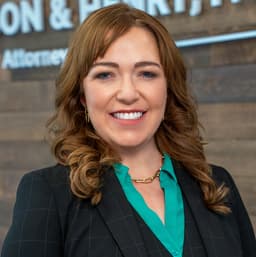Divorce, Family Law




News & resources
FAQs
The timeline for divorce in Colorado varies based on its complexities. Factors like child custody disputes, property division, or financial disagreements can significantly prolong the process.
While the minimum waiting period in Colorado is 92 days, most divorces take six to nine months to finalize.
Being organized and willing to compromise can help expedite the divorce. An experienced attorney can help you navigate the process.
Legal separation and divorce are both ways to end a marital relationship, although legally they are not the same.
A legal separation allows spouses to live apart while remaining married. The spouses can negotiate property division, spousal support, and child custody. However, they cannot legally remarry without first getting divorced. Divorce is the only way to legally end a marriage.
Furthermore, both spouses must agree to a legal separation, while only one spouse is needed to initiate a divorce.
In Colorado, marital property includes all assets acquired during the marriage, regardless of who earned or owned them. These assets can include real estate, personal belongings, financial accounts, and business assets.
Knowing what assets are yours and when they were acquired can help ensure the court divides everything fairly.
The difference between contested and uncontested divorces in Colorado boils down to one factor: whether both spouses agree on the terms of their divorce. To constitute an uncontested divorce, both parties must agree on significant issues and terms within the divorce agreement, such as child custody, property division, and spousal maintenance.
In a contested divorce, however, spouses typically disagree on one or more key issues. A highly skilled divorce lawyer will have your best interests in mind and can mitigate the risks associated with a contested divorce, such as protracted litigation, which drives up costs.
Colorado is a “no-fault” divorce state, meaning either spouse can file for divorce without needing to prove wrongdoing – such as adultery or domestic violence. The only significant requirements are that the marriage is deemed “irretrievably broken” – a marriage beyond repair – and that one of the parties must have lived in Colorado for 91 days prior to the commencement of the divorce proceeding. C.R.S. 14-10-106
A Colorado family law attorney can answer your questions about the state’s divorce proceedings.



















